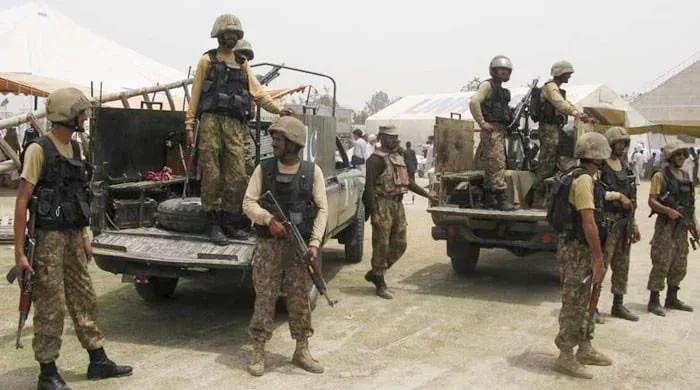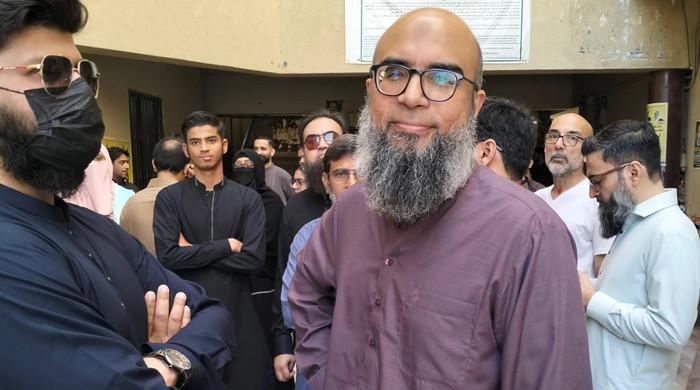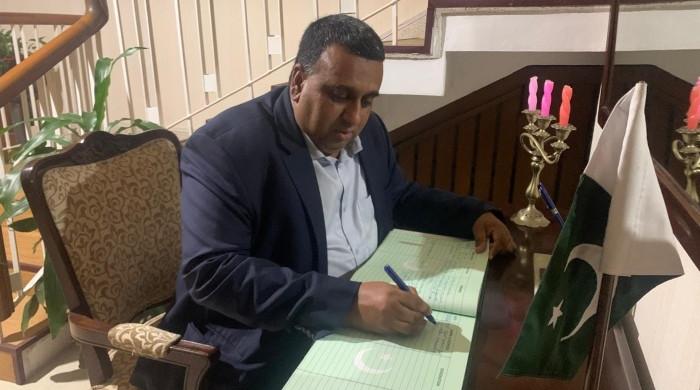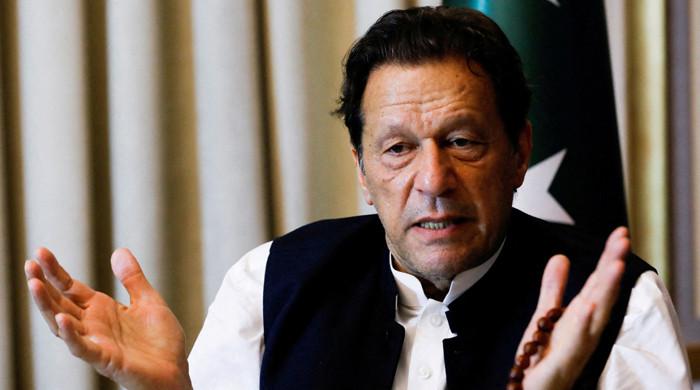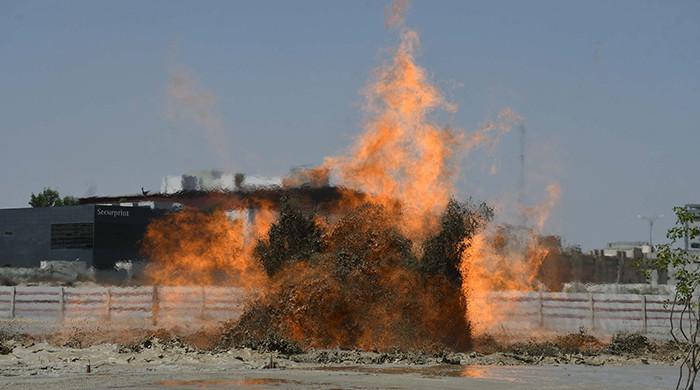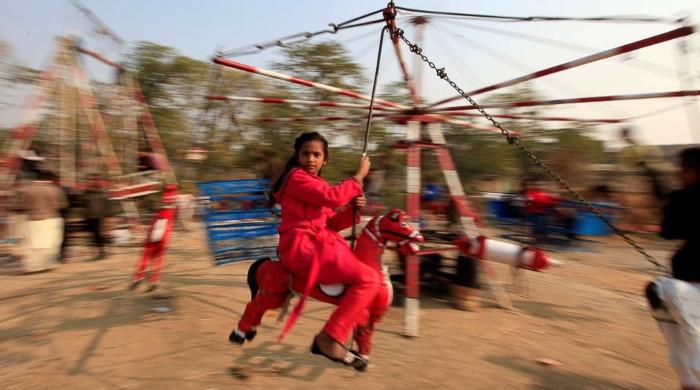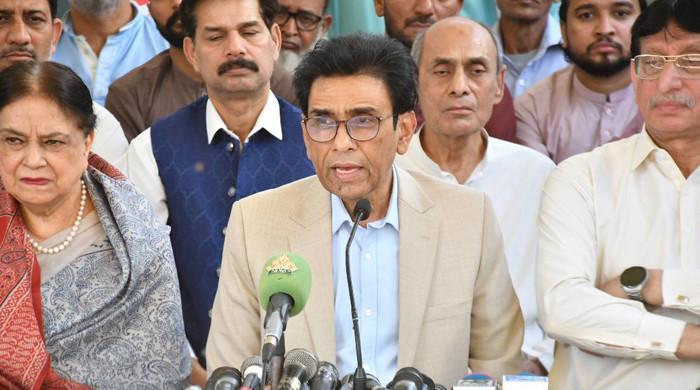Nawaz Sharif most popular leader in Punjab: survey
Gallup Pakistan survey lays out political mood of masses showing PML-N is gaining its lost ground, especially in Punjab
January 12, 2024
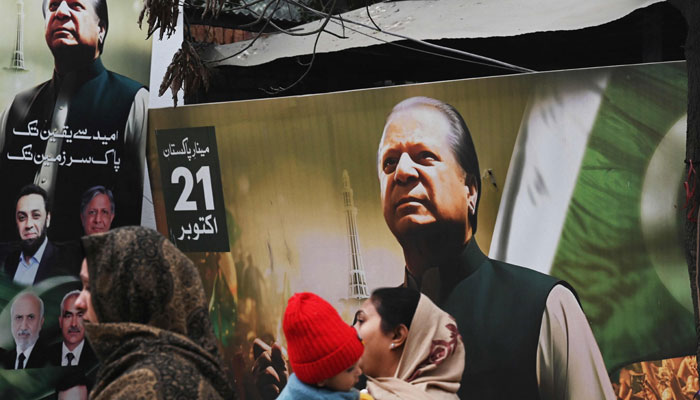
- Nawaz's popularity has gone up to 52% in December 2023.
- Gallup Pakistan survey lays out political mood of the masses.
- PML-N gaining its lost ground, especially in Punjab, survey mentions.
ISLAMABAD: Nawaz Sharif has emerged as the most popular leader in Punjab, according to a newly released survey, whereas he is fast catching up with Imran Khan at the national level as the former’s graph goes up and the latter’s is going down after incarceration.
A survey released by Gallup Pakistan on Thursday laid out the political mood of the masses that shows Pakistan Muslim League-Nawaz (PML-N) is gaining its lost ground, especially in Punjab, the participants were also asked about their favourite personalities. One survey was conducted in June and another in December last year. The mood swing in this span shows Nawaz Sharif making advances since his return to Pakistan.
At the national level, Nawaz has gone up from 36% popularity (in June 2023) to 52% (in December 2023). Imran in the corresponding period has gone down from 60% to 57% which suggests that public mood is swinging towards the former keeping in view the perception that he will be able to form the next government whereas the latter stands no chance in the near future. So going by the above, it appears that though Khan is still the most popular leader at the national level, it is on decline whereas Nawaz heads upward in terms of approval rate.
If their standing is judged at Punjab level which will be the key determinant in deciding the future prime minister, Nawaz has scored higher than Imran. The only survey conducted in this regard at the provincial level was in December which shows Nawaz’ popularity at 60% and Imran’s at 53%. Third most popular leader in Punjab is Jamaat-e-Islami’s emir, Sirajul Haq (36%). Bilawal Bhutto follows him with 34% popularity. Saad Rizvi of Tehreek-e-Labbaik Pakistan grabbed fifth slot by scoring 31% approval. Maulana Fazlul Rehman (27%) and Jahangir Tareen (21%) comes after him.
A national-level survey of the leaders’ personal approval rate indicates that almost all the leaders surveyed have lost popularity except Nawaz Sharif, Maulana Fazlul Rehman and Khalid Maqbool Siddiqui. As mentioned above, Imran’s rating decreased by 3%. Similarly, Saad Rizvi went down 10% (from 38% to 28%) in the duration of seven months. Bilawal lost 1% from 36% to 35%. Tareen’s rating decreased by 3%.
Overall mood suggests that Pakistan Tehreek-e-Insaf (PTI) and PML-N are in neck-on-neck competition in Punjab if the elections are held today. The gap between the two parties is 2% which is within the error margin of this survey and therefore statistically insignificant.
Given Punjab represents more than half of the National Assembly seats, this narrowing gap however could have implications in terms of both parties’ abilities to bag seats. Both parties have had the same position in 2018 elections as PTI got 36% vote and PML-N 35% votes and it resulted in a difference of two seats. PTI bagged 63 seats and PML-N 61 seats.
In Khyber Pakhtunkhwa (KP), PTI’s approval has increased to 45% in 2024 from 37% in 2018. The Jamiat Ulema-e-Islam Fazl (JUI-F) has 15% approval rate there, PML-N 9% whereas 7% each of Awami National Party (ANP) and PPP. Considering JUI-F and PML-N alliance in South KP (stronghold of JUI-F) and Hazara region (stronghold of PML-N) could upset the PTI there. Same goes in Malakand where ANP and PPP have its vote bank.
Originally published in The News




